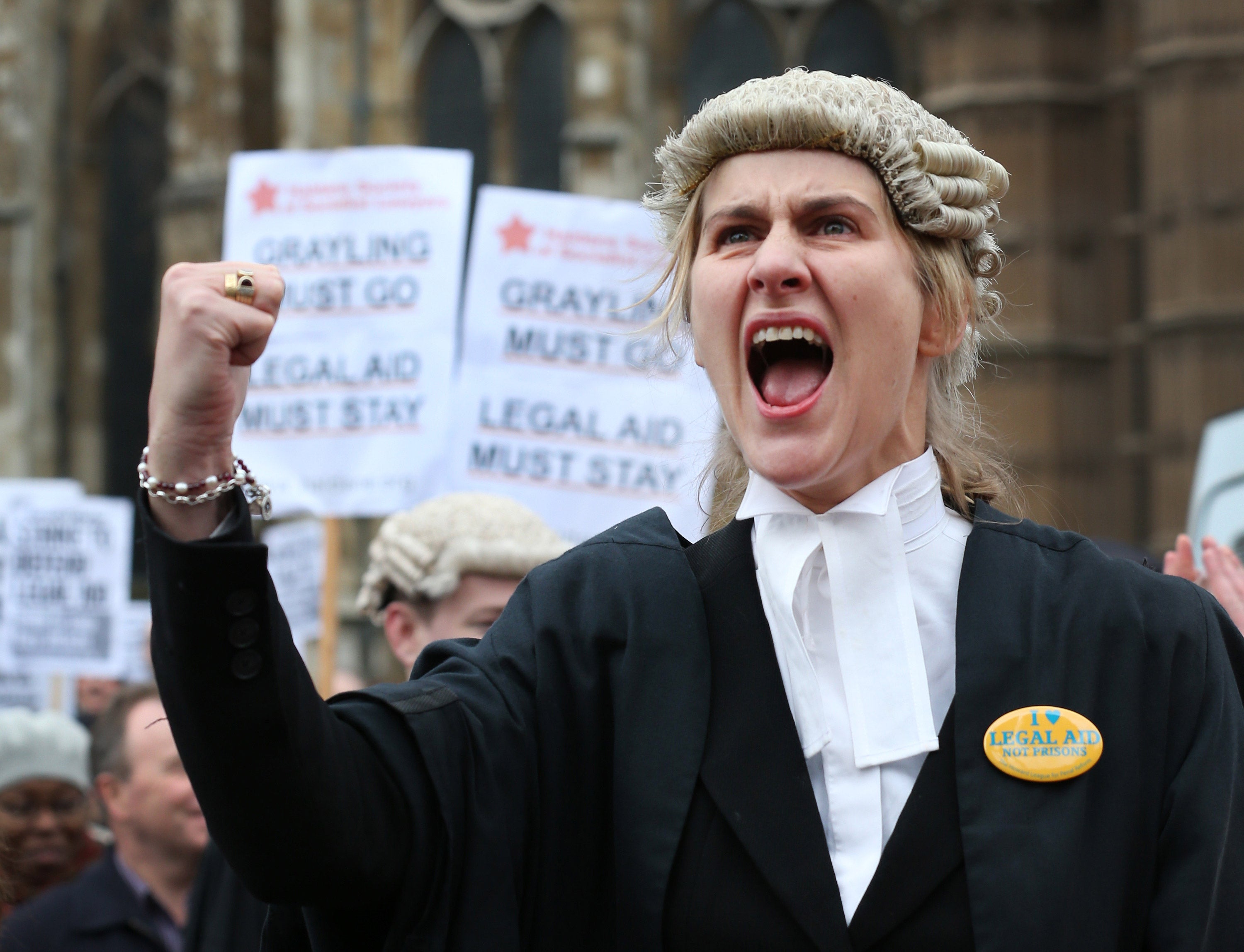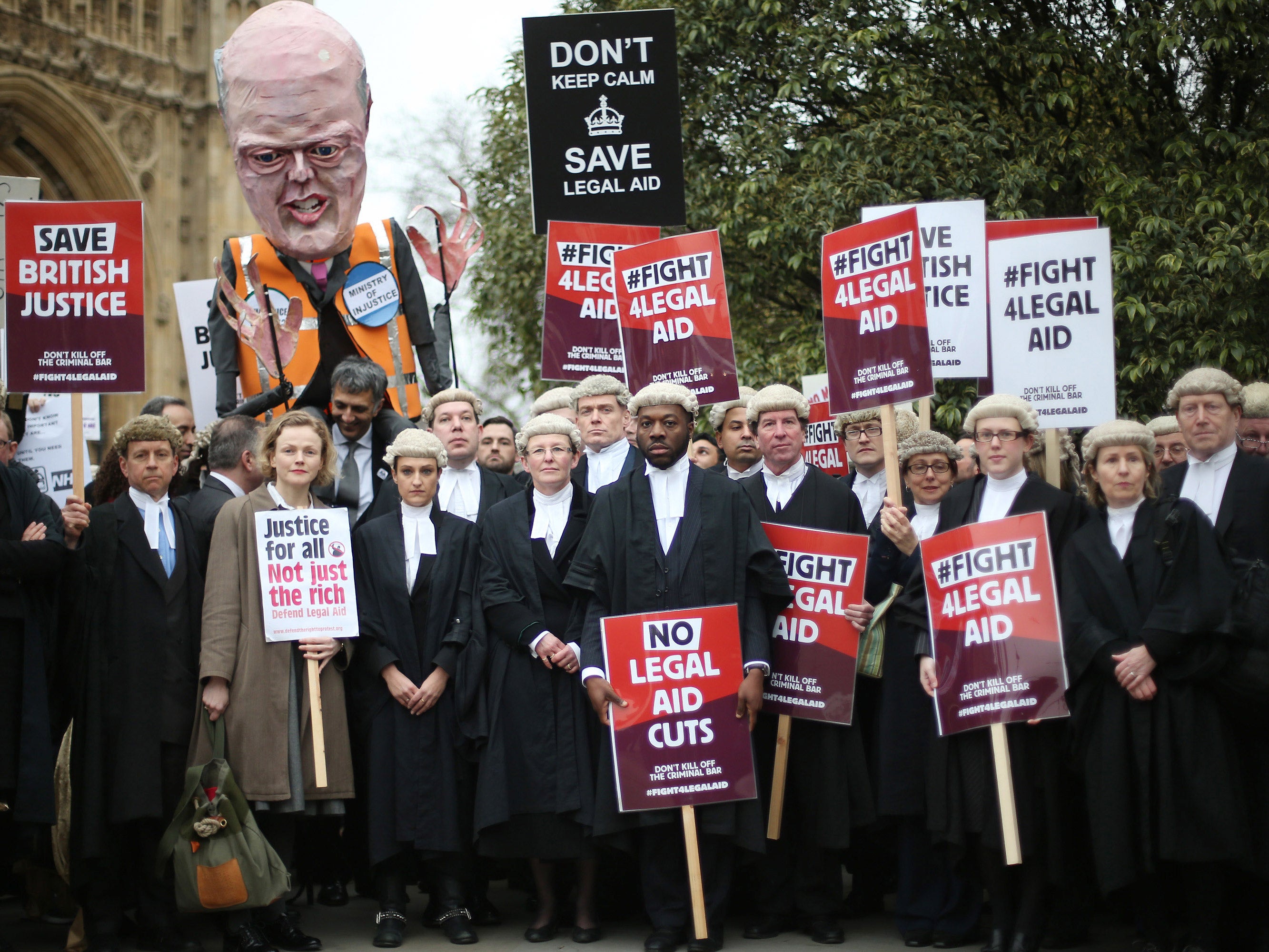Courts at risk of standstill as barristers vote to join solicitors' protest against legal aid cuts
Barristers taking part will refuse to accept work issued after 1 July

Courts across England and Wales hearing high-profile criminal cases could be brought to a standstill within weeks, after barristers voted to join a growing protest by solicitors over the Government’s cuts to legal aid.
The Criminal Bar Association (CBA) have announced that its 4,000 members had voted in favour of joining the action by a narrow majority of 55 per cent. Barristers taking part will refuse to accept work issued after 1 July, the date on which the latest cuts to legal aid were imposed.
They will also operate a policy of “no returns”, refusing to cover for colleagues at courts, which could lead to postponements and significant case backlogs. Solicitors who represent defendants in criminal cases have been withholding their services in protest against the cuts for several weeks.
The ultimate decision on whether or not to take part in the strike will be left up to individual barristers, with the largest turnout likely to be in the north of England. Although fewer than half of the CBA’s members took part in the strike ballot, the result is a blow to the CBA’s leadership as it had urged them to vote against joining the action.
A meeting of the CBA’s executive committee was due to take place on 15 July. to discuss the plans. Tom Wainwright, a barrister at Garden Court Chambers in London who is a member of the executive, said the result of the vote was a “huge” moment. “The fact that we have voted to take these steps demonstrates just how dire the situation is,” he told The Independent.

“The fact that the result was achieved despite opposition from the leadership of the Criminal Bar Association…shows that it is the junior bar, those at the coalface, who see clearly the real danger to the criminal justice system in not taking a stand at this stage. We do so for defendants, witnesses, victims and the public, we do so reluctantly and we do so before it is too late.”
The “no returns” policy will see criminal barristers refuse to cover work for colleagues in ongoing defence cases being funded through legal aid. Due to the often erratic nature of life at the criminal bar, the practice of “returns” sees barristers appearing at hearings if a colleague has to appear in court somewhere else at the same time.
As such diary clashes are a regular occurrence, the “no returns” part of the action is expected to have a more significant impact on the running of the country’s courts than a walk-out. It could result in long delays as cases are postponed, leading to large backlogs. In January 2014 the CBA took a similar action, bringing trials across the country to a halt.
Read more: Criminal barristers vote to refuse taking work
Chris Grayling’s legal aid cuts ‘so unfair they are illegal’
Major firms back lawyers' strike over legal aid cuts
Appearing in front of the Justice Select Committee for the first time on 15 July, Michael Gove said he was “disappointed” to hear of the CBA’s decision. “I think it was interesting that the vote was closer than many might have anticipated and of course there were a number of members of the criminal bar who didn’t vote,” the Justice Secretary added.
“Notwithstanding the vote today, which I think may be the consequence of bruised feelings in the past as much as anything else…I can continue to work with the leadership of the CBA and with the Bar Council to address a number of concerns.”
